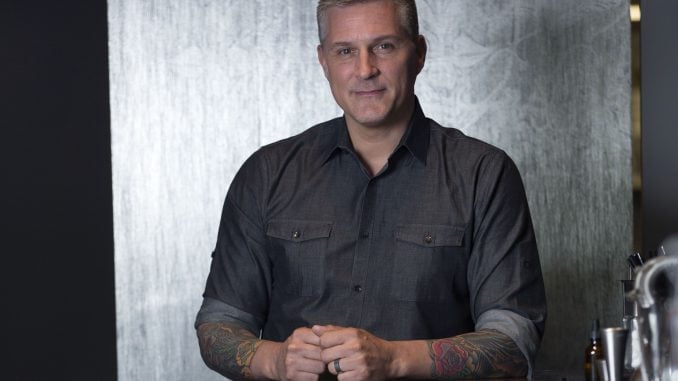
Scott Crawford wants to eliminate the shame of alcoholism or drug abuse by providing a safe space for those struggling with addiction.Crawford, of Crawford and Son restaurant in downtown Raleigh, started a Raleigh chapter of Ben’s Friends, a support group for people battling addiction in the hospitality industry.”We have lots of people who want to change their lifestyle and feel like they have to leave the industry to do so,” Crawford said. “We want to shatter that notion. I want to speak as loudly and clearly as I can if you are working in this industry and struggling there is a place you can go and there are people that can help you.”Ben’s Friends started in honor of Ben Murray, who died last year when he took his life after an addiction relapse. Crawford, Steve Palmer and Mickey Bakst had helped Murray open a restaurant.”It was a magical team, and it was funny that we were just all sober and clean,” Crawford said. “We had a lot of funs conversations about that and what life was like before and what it’s like now. Ben suffered a relapse shortly after that opening and didn’t make it through the relapse. He took his own life, and it really affected all of us, especially Steve Palmer, who really just wished he could’ve helped him somehow.”Palmer and Bakst started Ben’s Friends in Charleston. After attending a meeting, speaking out about his struggles with addiction and community members asking for help, Crawford knew it was time to start a chapter in Raleigh.”I knew a couple people in my area who were asking for help, so I decided the time was right to make a chapter in Raleigh,” Crawford said. “To do that, it just takes getting it out there, so people know that it exists and then providing that space. Well, I have the space. I put it out there, and we’ve had some incredible meetings so far, and I’ve met some incredible people.”Crawford said he leaves the meetings feeling positive, and he knows attendees feel the same.”It feels beyond good. It feels necessary at this point, because Ben is the only one who gets to be honored in this way,” Crawford said. “I’ve lost lots of friends since I started using at a very young age, I’ve lost so many friends. I’m sitting at these meetings speaking for those who are gone. I don’t want to lose anymore.”He said unlike other alcohol and drug addiction support groups, Ben’s Friends has two differences being public and catering to those in the food and beverage industry. The hospitality industry attracts a “certain personality that might be somewhat edgy or night owls, work hard and play hard.””When you’re in the trenches of an intense service with your team, it’s almost expected that you will be in the bar doing shots with them afterwards celebrating that you survived that service,” Crawford said. “It’s very intense work whether it’s on the line in the kitchen or on the floor. It’s just intense. Dinner service is intense, and it’s an adrenaline rush, so it’s just become normal practice just to go out afterwards and blow off steam.”He said the drinking culture can become unhealthy for some.”It can end up going to a little partying rut to a real serious problem pretty quickly,” Crawford said. “How serious is it? It’s life and death serious sometimes for people. That’s our reality.”Crawford said he knows how bad it can get with losing countless friends and his own struggles with drugs and alcohol, but he wants the community to know there is a way out.”Life is messy, and I’m not afraid to talk about how messy it was, how difficult, how dark it may have been, because it doesn’t have to stay that way,” he said. “And it didn’t for me, fortunately. When I speak about my life now having a family and a business, it’s beyond amazing.”So at 11 a.m. on Sundays, Crawford and other members of the food and beverage industry who need support meet at his restaurant to discuss acceptance, resentment, anger and gratitude and share their experiences in a friendly environment.”Because it’s industry-focused when people come to this meeting and they sit down, there’s immediately a camaraderie,” he said. “There is a trust, and there’s a common thread in all the people. That sometimes in recovery takes a long time to establish with a group. It’s almost immediate in this group.”



